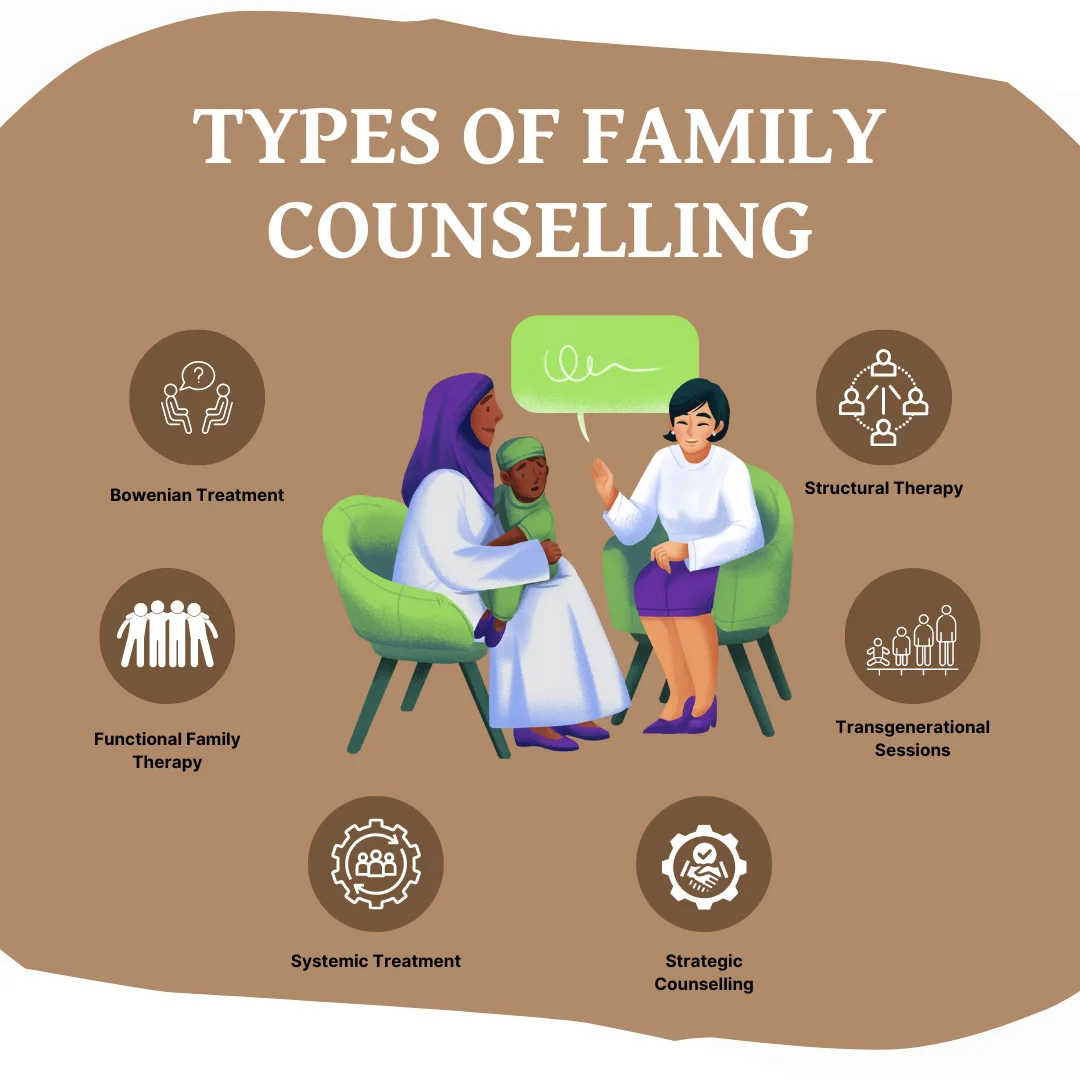relationship therapy: Practical Tips for Managing Conflict
Wiki Article
Exploring the Advantages of Virtual Therapy in Modern Mental Healthcare
The increase of virtual therapy notes a significant shift in psychological healthcare. It supplies improved ease of access, enabling individuals from varied backgrounds to look for aid without geographical restrictions. Versatility in organizing suits varying way of livings, while the convenience of home can cultivate openness. The ramifications of these changes prolong past simple ease. The evolving landscape of therapy raises crucial questions about its long-lasting impacts on patient engagement and treatment outcomes.Improved Availability for All
Typical therapy typically provides obstacles such as geographical place and scheduling disputes, virtual therapy considerably enhances ease of access for people looking for mental health and wellness assistance. By removing the need for physical traveling, virtual therapy allows clients from remote areas or those with mobility challenges to get in touch with qualified specialists. This setting of therapy can reach underserved populaces who might do not have local psychological health resources, therefore attending to differences in accessibility to care. Additionally, virtual systems can provide to diverse demands, supplying services in several languages and suiting numerous social backgrounds. Clients can engage with a broader variety of experts, offering them with alternatives that align with their specific requirements and preferences. This raised availability fosters an extra comprehensive atmosphere, allowing people to seek help without the preconception typically related to in-person check outs. Overall, virtual therapy represents a considerable improvement in making mental healthcare more accessible to all.Flexibility in Scheduling Procedure

As virtual therapy continues to obtain grip, its fundamental adaptability in organizing sessions proves to be a substantial benefit for many individuals. Unlike standard in-person therapy, virtual therapy allows customers to pick session times that best fit their personal and specialist dedications. This adaptability accommodates those with requiring job routines, family members responsibilities, or other dedications that can make attending physical visits testing.
Clients can conveniently reschedule or readjust their sessions as required, decreasing the tension connected with rigid visit systems. The availability of various time ports throughout the week, consisting of nights and weekends, better boosts access. This versatility not only encourages uniformity in participation but additionally cultivates a higher commitment to the healing process. Inevitably, the versatility in scheduling sessions stands for a transformative change in mental healthcare, equipping people to prioritize their well-being without sacrificing various other elements of their lives.
Comfort of a Familiar Setting
The comfort of a familiar environment substantially enhances the performance of virtual therapy for lots of customers. Participating in therapy from the safety and security of their very own homes permits people to feel even more secure, minimizing anxiousness that might come with standard in-person sessions. This familiarity can promote open interaction, enabling clients to reveal their thoughts and sensations more freely.The presence of individual products and the capability to manage their surroundings can add to a sense of security and leisure. Clients frequently report that remaining in a comfy room permits them to focus more on the healing procedure instead of the setting itself.
Additionally, the informal nature of virtual sessions can assist dissolve obstacles that might exist in a traditional office atmosphere, cultivating a much deeper link with specialists. Overall, the comfort of familiar environments plays an essential function in boosting the healing experience and effectiveness for numerous individuals seeking psychological health and wellness assistance.
Bigger Variety Of Therapeutic Choices
A wider variety of therapeutic alternatives comes to be available with virtual therapy, enabling clients to access different techniques that might not be feasible in typical settings. This versatility makes it possible for people to explore diverse strategies such as cognitive-behavioral therapy, mindfulness practices, art therapy, and also specialized treatments like trauma-informed treatment or dialectical habits therapy.Customers can select from a wider spectrum of specialists, consisting of those that specialize in niche areas or specific populations, boosting the probability of discovering a suitable match. Virtual systems commonly supply access to team therapy sessions, assistance neighborhoods, and workshops that may be geographically unavailable or else.
This variety empowers clients to participate in their healing process according to their one-of-a-kind choices and demands, potentially raising motivation and commitment to therapy. Consequently, the landscape of mental healthcare ends up being extra comprehensive and adaptable, satisfying a broader selection of specific experiences and challenges.
Reduced Stigma Surrounding Therapy
Accessing therapy through virtual platforms adds to a substantial reduction in the preconception traditionally related to mental health and wellness treatment. By supplying a discreet and private setting, virtual therapy permits people to seek help without the concern of being evaluated or recognized. This anonymity attract those who may otherwise be reluctant to pursue in-person therapy because of societal assumptions surrounding mental health.As the frequency of virtual therapy increases, it stabilizes the conversation around psychological health, making it a more acceptable part of everyday life. Individuals frequently feel much more comfortable discussing their experiences online, advertising visibility and reducing sensations of seclusion. The accessibility of these solutions additionally encourages a broader demographic to engage with psychological wellness sources, cultivating a society of assistance instead than pity. Eventually, the rise of virtual therapy plays a vital function in reshaping attitudes towards looking for aid, adding to an extra approving society relating to mental health obstacles.
Cost-Effectiveness and Price

Reduced Session Expenses
Many individuals looking for mental health assistance locate that virtual therapy greatly reduces session prices compared to typical in-person options. The elimination of travel costs and pause job often adds to general financial savings. Furthermore, numerous virtual specialists supply affordable rates due to reduced overhanging costs associated with keeping a physical workplace. This shift in expenditure enables customers to gain access to quality psychological wellness services without the financial pressure that might include traditional therapy. For many, this price allows much more frequent sessions, which can enhance therapy results. Consequently, virtual therapy not just equalizes access to psychological wellness treatment but additionally offers a lasting monetary model that aligns with clients' budgets, making psychological health and wellness support much more obtainable for a bigger target market.Increased Gain Access To Options
While standard therapy often offers logistical obstacles, virtual therapy greatly increases access options for people looking for mental healthcare. By removing the demand for travel and permitting flexible organizing, virtual therapy suits diverse lifestyles and commitments. This availability is particularly beneficial for those in remote locations or with mobility obstacles. In addition, the cost-effectiveness of virtual therapy lowers financial pressure, making psychological wellness solutions extra obtainable. Many platforms supply tiered prices or sliding range costs, advertising price. Insurer increasingly acknowledge virtual therapy, further boosting its economic availability. In general, virtual therapy not just widens the extent of that can get treatment yet additionally addresses economic barriers, making mental health and wellness support a lot more inclusive and obtainable for all.Enhanced Connection of Treatment
Enhanced connection of treatment becomes a significant advantage of virtual therapy in modern mental healthcare. This method enables clients to maintain consistent communication with their specialists, no matter geographical obstacles or scheduling problems. virtual therapy. The flexibility of virtual sessions fosters routine check-ins, which are essential for relationship therapy monitoring progress and adjusting treatment prepares as neededIn addition, digital wellness records and telehealth systems promote seamless information sharing amongst treatment suppliers. This interconnectedness guarantees that all professionals included in a client's care are updated on treatment advancements, bring about more worked with and effective treatments.
Patients commonly experience decreased anxiety and increased involvement because of the convenience of accessing therapy from familiar environments. Such accessibility enhances adherence to treatment routines, inevitably boosting results - low cost therapy. To summarize, virtual therapy not just bridges voids in psychological health and wellness solutions however also fortifies the connection of treatment, a vital part of successful restorative relationships
Often Asked Questions
Exactly How Does Virtual Therapy Ensure Privacy and Privacy for Customers?
The present inquiry addresses the steps virtual therapy uses to secure customer confidentiality. Using encrypted systems, protected logins, and conformity with regulations like HIPAA, virtual therapy assurances that sensitive info remains personal and hard to reach to unapproved individuals.Can I Change Therapists Easily in Virtual Therapy?
Switching over therapists in virtual therapy is generally simple. Clients can interact their desire for an adjustment via the system, permitting adaptability in finding a better suit without the logistical difficulties of in-person appointments.What Innovation Do I Need for Virtual Therapy Procedure?
To take part in virtual therapy sessions, a private usually needs a trustworthy web connection, a computer or mobile phone with an electronic camera and microphone, and access to a safe video conferencing system specified by their specialist.
Are Virtual Therapy Procedure as Effective as In-Person Procedure?
Recent researches show that virtual therapy sessions can be similarly efficient as in-person sessions, depending upon the individual's preferences and situations. Factors such as comfort and availability might boost the overall restorative experience for some clients.What Should I Do if I Experience Technical Issues Throughout a Session?
If technological problems emerge throughout a session, one ought to comfortably connect the trouble to the specialist, effort to reconnect, or switch to a backup method. Persistence and adaptability are important in managing these interruptions.Report this wiki page